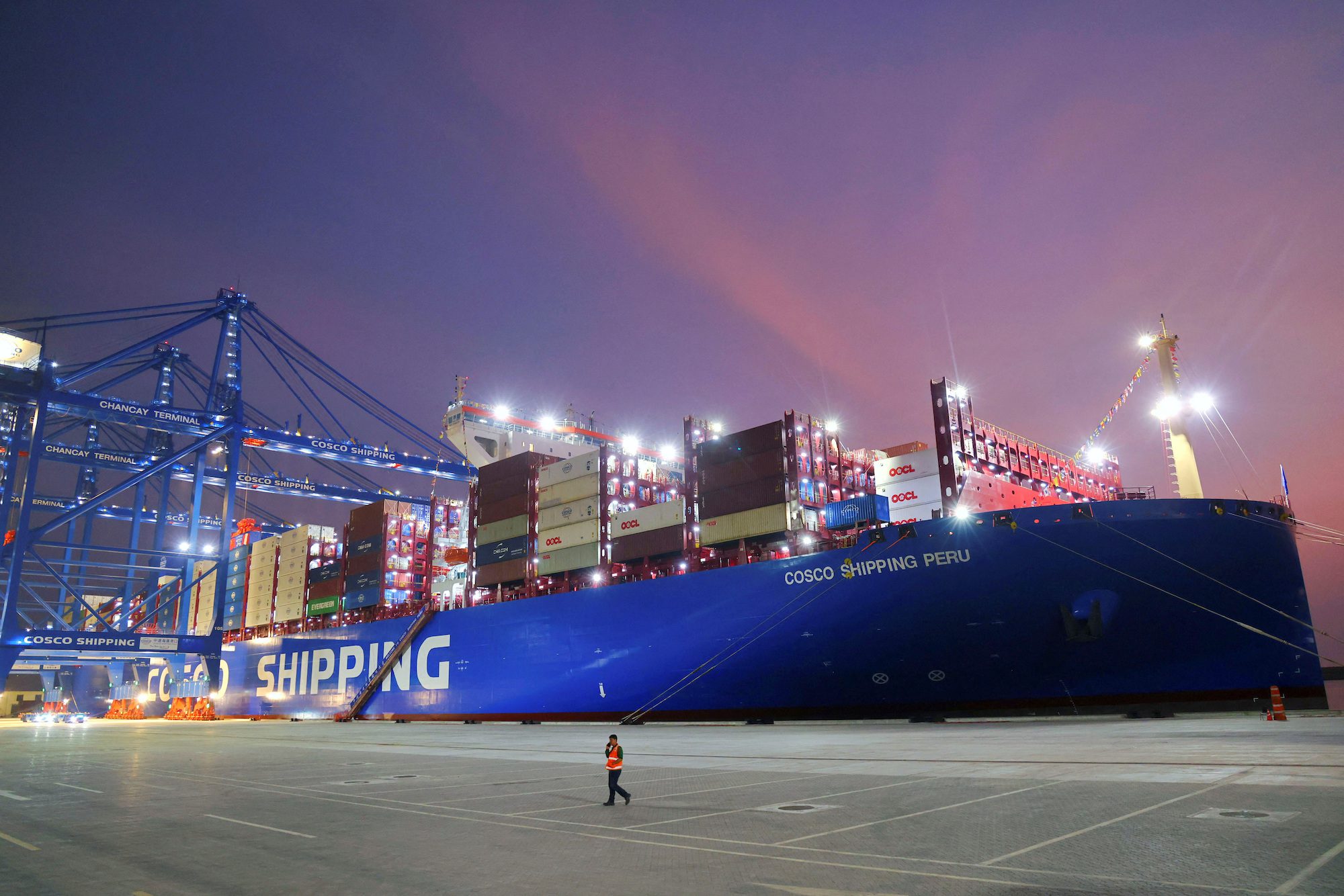(Bloomberg) — Expanding sanctions on Chinese ports and refiners are choking flows of Russian and Iranian oil to the world’s No. 1 importer, although emerging workarounds suggest the slowdown may be fleeting.
The big state-owned processors have paused purchases of ESPO, the crude that makes up the bulk of China’s imports from Russia, following US sanctions on producers Rosneft PJSC and Lukoil PJSC. Washington’s targeting of the Rizhao oil terminal, which handled about a 10th of China’s crude imports, is also crimping Iranian flows.
And some private refiners, which are typically more risk-tolerant when it comes to buying sensitive oil, are also avoiding the grade from Russia’s Far East. Their caution comes after the European Union and the UK’s blacklisting of Shandong Yulong Petrochemical Co., a so-called teapot that was a major buyer of Russian oil.
Taken together, all of this has created an unusual level of trepidation in the market.
The increased fear is what sets the latest US measures apart from previous Western curbs, according to Vandana Hari, founder of Singapore-based analysis firm Vanda Insights. “US sanctions on Rosneft and Lukoil could be a little bit of a game-changer.”
The nervousness among Chinese buyers comes as Indian refiners also scale back their purchases of Russian oil, showing that Western efforts to deprive the Kremlin of funds for its war in Ukraine are finally having an impact. However, the resilience of already-blacklisted ports, like Dongjiakou in Shandong province, suggests there could be a resurgence in flows without strict scrutiny and enforcement.
Chinese imports of seaborne Russian crude may drop by 500,000 to 800,000 barrels a day this month, or as much as two-thirds from normal levels, according to an estimate by industry analytics firm Rystad Energy AS. Inflows from Iran, meanwhile, could fall by 200,000 to 400,000 barrels a day, or as much as 30%.
There’s a growing glut of sensitive oil that’s struggling to find a home, said Emma Li, lead China market analyst at ship-tracking and intelligence firm Vortexa Ltd. China’s private refiners, or teapots, are running short of import quotas to bring in barrels, and sellers are desperate to get rid of them, which is pushing down prices, she said.
Chinese imports of Iranian oil, which Rizhao is a key gateway for, remain subdued after the port was sanctioned in October for its links to the Persian Gulf producer. Already-high stockpiles in Shandong and a lack of oil-import quotas among private refiners are also damping demand for those barrels, according to Vortexa.
That’s seen the amount of Iranian crude being stored at sea rise to almost 48 million barrels at the end of last week, the most in more than two years, according to Kpler. Around 40% of this oil is in the Singapore Strait, and a similar proportion is in the Yellow and South China Seas, the data intelligence firm said.
There’s now an overhang of ESPO, which is being offered at a $4 a barrel discount to benchmark prices for delivered sales to China, according to traders. That’s up from a 50 cent-gap at the end of October.
Those kinds of prices could be too tempting for some Chinese refiners, which may resort to the timeworn method of turning off transponders and doing ship-to-ship to mask the origin of the crude they are buying.
Dongjiakou port is also emerging as a conduit for sensitive crudes. It was sanctioned by the US in August, raising risks for any traders, shipowners and financiers found to be involved in using it. However, after a brief curtailment of flows, it’s now handling major volumes of Iranian crude again, suggesting that opportunity still outweighs the potential costs for some buyers.
The current lull in purchases of Russian and Iranian oil may also be partially down to a scarcity of import quota for private refiners as the end of the year approaches. This may them to ask the government for more.
Even if additional quotas are granted, some Chinese refiners will likely adopt a “wait-and-see approach” to Russian purchases, to see how strictly the sanctions are enforced, said Jianan Sun, an analyst at industry consultant Energy Aspects Ltd. “Time will be needed to firm up new procurement channels and supply chains.”
© 2025 Bloomberg L.P.
Editorial Standards · Corrections · About gCaptain
This article contains reporting from Bloomberg, published under license.

 Join The Club
Join The Club











